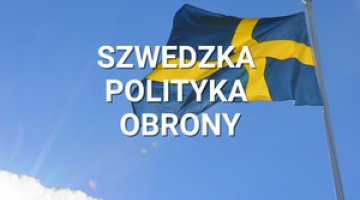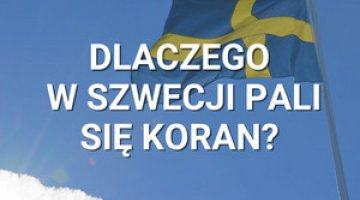The future of Sweden’s security and defence policy after the Russian-Ukrainian crisis
The Russian-Ukrainian crisis has changed the perception of Russia in Sweden and contributed to growing concern over the security of the country and the Nordic-Baltic region. It will not, however, trigger a major change in direction in Sweden’s security and defence policy. It should not be expected that Sweden will join NATO in the short to medium term. The present elements of Sweden’s policy will be upheld and certain of them slightly extended. These include the development of closer military co-operation with NATO, within the EU and with the Nordic and Baltic states. Since there will be no fundamental change in Sweden’s policy, it is crucial for Sweden (and also for the NATO countries in the Nordic-Baltic region) to enhance the operational readiness of Swedish Armed Forces and to strengthen their capabilities to defend the country and to interoperate with NATO in the region. Although Swedish statements have been issued indicating that this will happen (for example regarding the purchase of additional armament and military equipment and increasing the defence budget) the implementation of these declarations within the next five years is not certain.
The Russian-Ukrainian crisis unfolded as work was being done on the second report of the Swedish Defence Commission (published 15 May) which had been commissioned by the defence minister to develop recommendations regarding the direction the security and defence policy and the development of Swedish Armed Forces should take for the period 2015-2018. The report reflects the consensus between the majority of Sweden’s political elite on aspects of security and the country’s defence and its recommendations will provide the basis for a new security strategy and a programme for the development of the Swedish Armed Forces to be passed by Swedish parliament.
The implications for Sweden’s security policy
The Russian-Ukrainian conflict has changed the perception of Russia among the largest Swedish political parties (Moderates and Social Democrats) which so far have preferred not to notice the challenges linked with the Russian armament programme and Moscow’s aggressive activities in its neighbourhood. The report published by the Defence Commission clearly points out the Russian aggression against Ukraine and therefore an increased insecurity in the Baltic Sea region. This change in the rhetoric will not, however, bring about a fundamental shift in the direction of Swedish security and defence policy. The expectations of a large part of Swedish and foreign experts and opinion leaders that Sweden joins NATO will not be realised in the short to medium term. Swedish identity resulting from history of “neutrality” is too deeply entrenched in the society and the willingness of Swedish politicians to break through these restraints is too small. Surveys indicate that support for Sweden to join NATO, to the surprise of many, has diminished due to the Russian-Ukrainian crisis (from over 30% in 2013 to its current level of under 30%). Sweden’s priority will be therefore to continue co-operation with NATO which will enable the Swedish military to maintain interoperability with NATO forces. Participation in the NATO Response Force (NRF) and co-operation in the area of training and exercises will be an important element of this. Another element of the Swedish policy will be to strengthen European integration and collaboration within the EU in the field of civilian and military crisis response. Sweden will also further develop bilateral and multilateral military co-operation with the Nordic countries (with Finland currently perceived to be the main partner), with the Baltic states, and in the background, with other countries of the Baltic Sea region (Germany, Poland).
For Sweden, however, the challenges and threats are also of a global nature and include: international terrorism, organised crime, climate change, economic crises, failing states, migration. Sweden is one of the most globalised countries in the world (in terms of its trade relations) and aspires to play a role in international politics greater than its size would seem to afford it. For this reason Sweden’s participation in UN peacekeeping operations, EU civil and military crisis management missions and NATO operations will be still seen as an important element of the foreign and security policy and will be continued.
The implications for the development of the Swedish Armed Forces
Given the lack of an overhaul in security and defence policy, the most important question for non-NATO Sweden and for the NATO countries in the Nordic-Baltic region is the strengthening of Swedish defence capabilities which in recent years have been questioned by Swedish analysts and checked by Russian military (e.g. exercises simulating attacks on Swedish territory in the proximity of Swedish air space and the lack of response from the Swedish Quick Reaction Alert in March 2013). This means a strengthening of defence capabilities to contribute to the effective surveillance and defence of Swedish land territory and territorial waters as well as an ability to carry out operations in case of crises and conflict in co-operation with NATO forces in the Nordic-Baltic region (e.g. monitoring and securing maritime and air routes) and within Sweden (e.g. the use of Swedish air and sea bases by NATO forces).
In spite of the Russian-Ukrainian crisis, due to maintaining of the global and regional nature of the Swedish security and defence policy the majority of political parties opted for a continuation of the present armed forces’ reform while enhancing the country’s capabilities to conduct operations at home and in the Nordic-Baltic region. It is worth noting that since 2009 the Swedish military has been reformed following the model of expedition forces. The Defence Commission has stated that the main priority is to develop the operational readiness of combat units - to supplement them with necessary military personnel and to intensify military exercises for particular and for all branches of armed forces. In case of possible crises and conflicts in the region, Stockholm County and Gotland island have been prioritised in the defence of the country. However, no decision was made to permanently deploy military units in Gotland. It was instead decided that the temporary presence of the Air Forces and Navy there should be strengthened. The Defence Commission proposed the purchase of additional armament and military equipment, including increasing the number of JAS 39E fighter aircraft from the currently planned 60 to 70, purchasing air-to-surface long-range cruise missile, increasing the number of planned submarines from 4 to 5 and providing the Army with an additional medium-range air defence battalion (the purchase of such systems is in the planning stages). The commission thought it necessary for the Army to regain the capability to command major tactical units, i.e. brigades. It also proposed returning to the Army structure being organised into brigades in order to enhance capabilities to carry out operations against “symmetrical” enemy (at present the Army is organised in battalions, from which battle groups are formed, for the main purpose of serving in asymmetrical crisis-management operations abroad). Attention was also drawn to the development of the National Protection Forces units (improving command & control, providing additional armament and military equipment), which are part of the Home Guard and are to protect Swedish air and maritime bases, critical infrastructure and other vital facilities in the country.
Question marks: military personnel, defence budget and the priorities of the new government
The planned strengthening of Swedish military capabilities is now key for Sweden and the neighbouring countries. There are, however, several reasons why it is not certain that it will be carried out.
Firstly, the Swedish Armed Forces are struggling with a lack of military personnel. If there are no changes in this area, these problems will probably worsen, which will result in a gradually decreased operational readiness of units of all types of armed forces. According to the decision of the Swedish government of autumn 2013, the Swedish Armed Forces will have to save approximately 55 million euros (0.5 billion Swedish crowns) on soldiers’ wages by 2019 as part of efforts to consolidate the state’s budget. The implementations of these guidelines will mean a decreased number of professional permanent soldiers in favour of temporary military service (this will involve soldiers working as civilians being called on contracts when required). Such a system is possibly effective in regard to Sweden’s participation in crisis-management operations abroad but not should the necessity arise to respond rapidly to challenges and threats to the security of the country and in the Nordic-Baltic region.
Secondly, the question arises as to whether the enhancement of the military capabilities of the Swedish Armed Forces – which has been underfinanced for several years now – will actually be reflected in a sufficiently increased Swedish defence budget in the coming years. The Swedish military spending has been for some years maintained on the level of approximately 4.6 billion euros (42 billion Swedish crowns), which represents 1.2% of Swedish GDP. The Defence Commission proposed to increase the defence budget by approximately 110 million euros (1 billion Swedish crowns) only in 2017 and by approximately 600 million euros (5.5 billion Swedish crowns) yearly in the period 2019-2024. Such a small increase in military spending in the years 2015-2018 will not be sufficient to meet the needs resulting from the implementation of the current plans. It is open to what extent the purchase of additional armament and military equipment will be accomplished in the next planning period 2019-2024.
Thirdly, it is not certain whether this level of funding will be ensured by the new government to be formed following the parliamentary election in autumn 2014. It is expected that it will be formed by the Social Democrats, the Green Party and the Left Party. The two latter parties do not see the question of increasing defence spending as being a primary issue. Their combined result (21.6%) in the elections to the European Parliament held on 25 may was almost as high as that of the Social Democrats (24.4%) which, if repeated in the next parliamentary election, will strengthen their position in negotiations of the coalition agreement in autumn this year.





